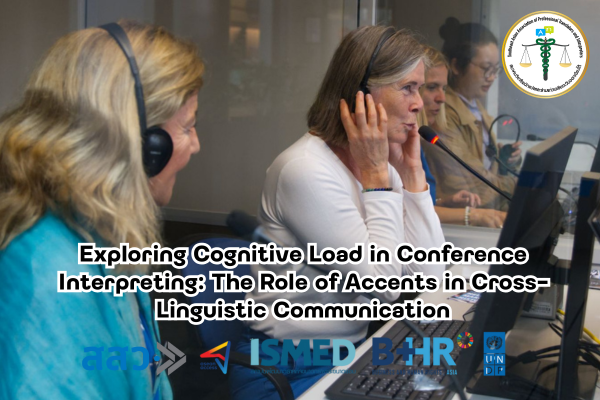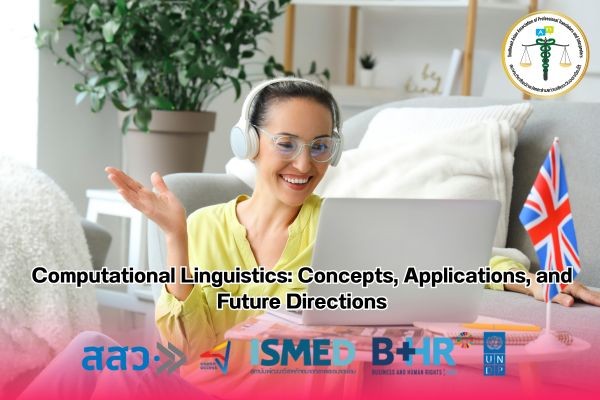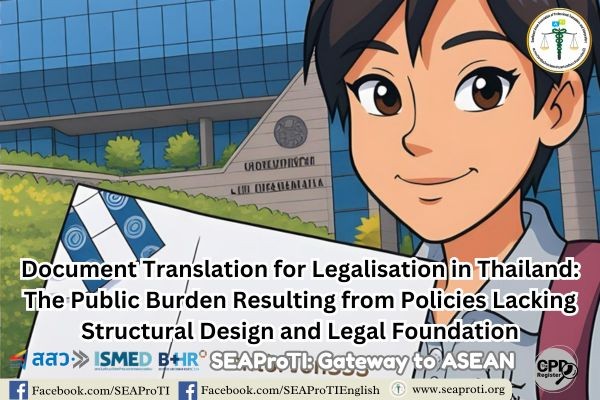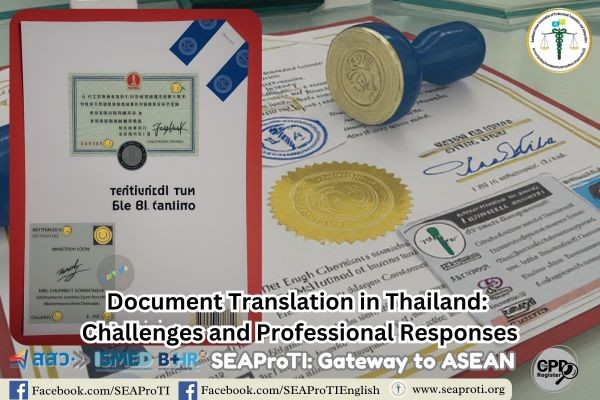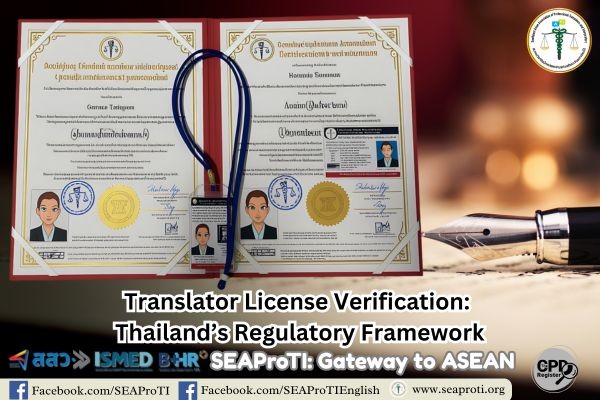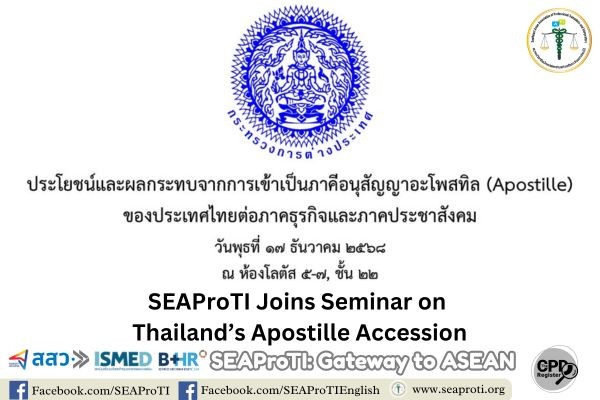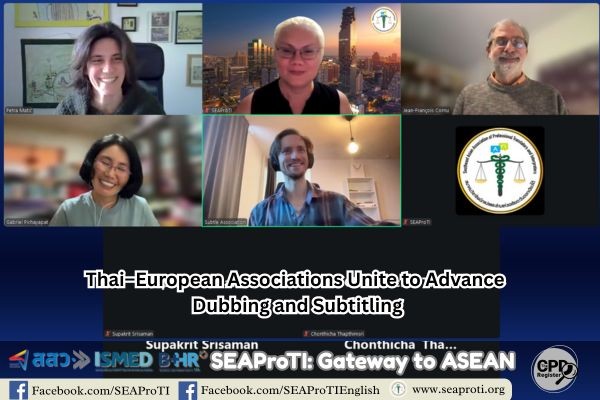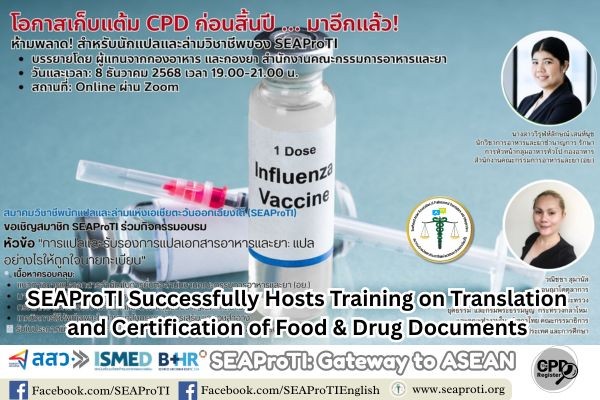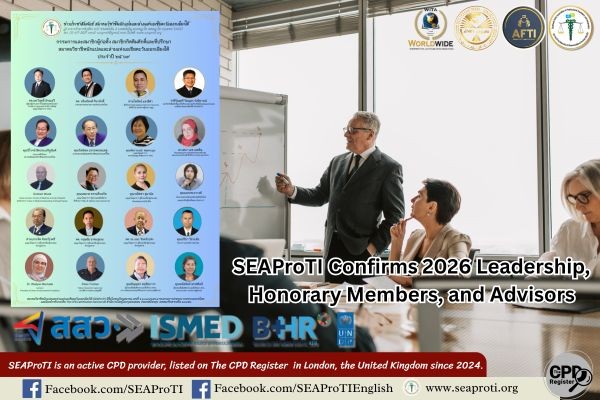Principles of Ethical Advertising and Public Relations for Certified Translators and Translation Certification Providers
Advertising and public relations play a vital role in the business of Certified Translators and Translation Certification Providers, especially in the highly competitive digital age. However, these activities must adhere to the professional ethics established by the Southeast Asian Association of Professional Translators and Interpreters (SEAProTI) to prevent misleading advertisements or exaggerated claims.
Principles and Acceptable Advertising Phrases
-
“Providing Translation Services for All Types of Documents”
Translators can use advertising phrases that showcase their readiness to provide services, such as “Providing translation services for all types of documents.” This covers general document translations, medical documents, and legal documents without making exaggerated claims about their capabilities. -
“Express Document Translation Within 24 Hours”
Using phrases like this is acceptable as some translators have sufficient resources to handle urgent document translations within the specified timeframe. They can manage their time and expertise to deliver services promptly. -
“Accurate and Precise Translations”
Emphasizing accuracy and precision in translation work is acceptable, particularly for translators who frequently handle specific language pairs and maintain specialized glossaries for regular clients. -
“Specialized Document Translation Services”
Translators can specify the types of specialized documents they offer, such as “legal document translations” or “medical document translations,” as long as the wording avoids misleading claims.
Examples of Advertising That Violates Professional Ethics
-
“Translations Without Any Errors”
This statement is an exaggerated claim as translation work may require adjustments depending on context or client preferences. SEAProTI emphasizes close collaboration with clients to resolve issues rather than guaranteeing “error-free” translations. -
“Guaranteed Document Approval”
Using phrases like this may mislead clients into believing that translated documents will be immediately accepted by relevant authorities. In reality, acceptance depends on multiple factors, such as the requirements of government agencies or other organizations. -
“Guaranteed Quality, 100% Error-Free”
Such claims contradict professional ethics since translations may need revisions to meet client demands or contextual requirements. Offering such guarantees can expose translators to legal risks if expectations are not met.
Case Study: Misleading Advertising
In 2021, a translator in Thailand faced a lawsuit from a client after advertising, “Translations Without Any Errors.” When the client submitted the translated document to a government agency, it was rejected due to errors. The client sued for damages, and the court ruled that the translator was guilty of fraud due to misleading advertising.
Consequences of Exaggerated Advertising
-
Risk of Legal Action
Exaggerated claims can lead to lawsuits if translation work fails to meet advertised standards. -
Unrealistic Client Expectations
Clients may have overly high expectations, leading to dissatisfaction if the results do not align with the advertising claims. -
Damage to Professional Credibility
Using inappropriate advertising phrases can erode trust in both the individual translator and the profession as a whole.
Preventative Measures and Recommendations
To avoid potential issues, certified translators and translation certification providers should:
-
Use straightforward and truthful advertising language aligned with their actual capabilities.
-
Avoid phrases that make exaggerated claims, such as “error-free translations” or “guaranteed quality.”
-
Focus on building strong relationships and trust with clients.
Ethical advertising and public relations not only protect translators from legal risks but also help build credibility in the profession and support the recognition of translation services at an international level.
SEAProTI’s certified translators, translation certification providers, and certified interpreters:
The Southeast Asian Association of Professional Translators and Interpreters (SEAProTI) has officially announced the criteria and qualifications for individuals to register as “Certified Translators,” “Translation Certification Providers,” and “Certified Interpreters” under the association’s regulations. These guidelines are detailed in Sections 9 and 10 of the Royal Thai Government Gazette, issued by the Secretariat of the Cabinet under the Office of the Prime Minister of the Kingdom of Thailand, dated July 25, 2024, Volume 141, Part 66 Ng, Page 100.
To read the full publication, visit: the Royal Thai Government Gazette
หลักการโฆษณาและประชาสัมพันธ์ที่สอดคล้องกับจรรยาบรรณวิชาชีพของนักแปลรับรองและผู้รับรองการแปล
การโฆษณาและประชาสัมพันธ์ถือเป็นส่วนสำคัญในการทำธุรกิจของนักแปลรับรอง (Certified Translators) และผู้รับรองการแปล (Translation Certification Providers) โดยเฉพาะในยุคดิจิทัลที่การแข่งขันสูง แต่การดำเนินการดังกล่าวจำเป็นต้องอยู่ภายใต้จรรยาบรรณวิชาชีพที่กำหนดโดยสมาคมวิชาชีพนักแปลและล่ามแห่งเอเชียตะวันออกเฉียงใต้ (SEAProTI) เพื่อป้องกันการโฆษณาชวนเชื่อหรือการอวดอ้างสรรพคุณเกินจริง
หลักการและคำโฆษณาที่สามารถใช้ได้
-
รับแปลเอกสารทุกประเภท
นักแปลสามารถใช้คำโฆษณาที่แสดงถึงความพร้อมในการให้บริการ เช่น “รับแปลเอกสารทุกประเภท” ซึ่งครอบคลุมงานแปลเอกสารทั่วไป เอกสารทางการแพทย์ และเอกสารกฎหมาย โดยคำนี้ไม่ได้มีการอวดอ้างความสามารถที่เกินจริง -
แปลเอกสารด่วนภายใน 24 ชั่วโมง
การใช้คำโฆษณาเช่นนี้เป็นที่ยอมรับ เพราะบางนักแปลมีทรัพยากรเพียงพอที่จะดำเนินการแปลเอกสารด่วนในระยะเวลาที่กำหนด ทั้งยังสามารถบริหารเวลาและความชำนาญในงานแปลเพื่อให้บริการได้ทันกำหนดเวลา -
การแปลที่แม่นยำและถูกต้อง
การเน้นถึงความแม่นยำและความถูกต้องในงานแปลเป็นสิ่งที่สมาคมยอมรับได้ โดยเฉพาะเมื่อนักแปลมีประสบการณ์ในคู่ภาษาที่แปลบ่อยครั้งและมีการจัดเก็บคลังคำศัพท์ที่ใช้งานเฉพาะอยู่แล้ว -
ให้บริการแปลเอกสารเฉพาะทาง
นักแปลสามารถระบุประเภทเอกสารเฉพาะทางที่ให้บริการ เช่น “แปลเอกสารกฎหมาย” หรือ “แปลเอกสารการแพทย์” โดยหลีกเลี่ยงการใช้คำที่อาจทำให้ลูกค้าเข้าใจผิด
ตัวอย่างคำโฆษณาที่ขัดกับจรรยาบรรณวิชาชีพ
-
“แปลไม่ผิดเลย”
คำกล่าวนี้เป็นการอวดอ้างเกินจริง เพราะในการแปลเอกสารมีโอกาสที่คำศัพท์หรือเนื้อหาจะต้องปรับเปลี่ยนตามสถานการณ์ หรืออาจมีข้อผิดพลาดที่ต้องแก้ไขในภายหลัง หลักการทำงานของ SEAProTI เน้นการทำงานร่วมกับลูกค้าอย่างใกล้ชิดเพื่อแก้ปัญหา ไม่ใช่การรับประกันว่า “ไม่มีผิดพลาดเลย” -
“แปลเอกสารผ่านฉลุย”
การใช้คำนี้อาจทำให้ลูกค้าเข้าใจผิดว่าเอกสารที่แปลจะได้รับการยอมรับทันทีจากหน่วยงานที่เกี่ยวข้อง ทั้งที่ในความเป็นจริง การตัดสินใจขึ้นอยู่กับหลายฝ่าย เช่น หน่วยงานราชการหรือองค์กรที่เกี่ยวข้อง -
“การันตีคุณภาพ แปลไม่ผิดพลาด”
คำกล่าวนี้ไม่สอดคล้องกับจรรยาบรรณวิชาชีพ เนื่องจากงานแปลอาจต้องมีการปรับแก้ไขตามความต้องการของลูกค้าและบริบทของเอกสาร การรับประกันในลักษณะนี้เสี่ยงต่อการถูกฟ้องร้องในกรณีที่งานแปลไม่ได้ตรงตามที่กล่าวอ้าง
ตัวอย่างคดีที่เกิดจากการโฆษณาชวนเชื่อ
กรณีศึกษาจากประเทศไทยในปี 2564 มีนักแปลรายหนึ่งถูกฟ้องร้องโดยลูกค้าเนื่องจากใช้คำโฆษณาว่า “แปลไม่ผิดเลย” เมื่อลูกค้าส่งเอกสารที่แปลไปยังหน่วยงานราชการ พบว่าเอกสารมีคำผิดพลาดและไม่ได้รับการอนุมัติ ลูกค้าจึงฟ้องร้องเรียกค่าเสียหาย โดยศาลตัดสินว่านักแปลรายดังกล่าวมีความผิดฐานฉ้อโกงประชาชน เนื่องจากคำโฆษณาที่ใช้สร้างความเข้าใจผิดในบริการที่ตนเองเสนอ
ผลกระทบของการโฆษณาเกินจริง
-
ความเสี่ยงต่อการฟ้องร้อง
การอวดอ้างสรรพคุณเกินจริงอาจนำไปสู่การถูกฟ้องร้องในกรณีที่งานแปลไม่เป็นไปตามที่กล่าวอ้าง -
สร้างความคาดหวังที่เกินจริงแก่ลูกค้า
ลูกค้าอาจมีความคาดหวังสูงจนเกิดความผิดหวังเมื่อผลลัพธ์ไม่ตรงกับคำโฆษณา -
ทำลายความน่าเชื่อถือในวิชาชีพ
การใช้คำโฆษณาที่ไม่เหมาะสมอาจทำให้ลูกค้าเกิดความไม่ไว้วางใจต่อทั้งนักแปลรายนั้นและวิชาชีพโดยรวม
แนวทางป้องกันและข้อเสนอแนะ
เพื่อป้องกันปัญหาที่อาจเกิดขึ้น นักแปลรับรองและผู้รับรองการแปลควรปฏิบัติตามหลักเกณฑ์ดังนี้:
-
ใช้คำโฆษณาที่ตรงไปตรงมาและสอดคล้องกับความสามารถจริง
-
หลีกเลี่ยงการใช้คำที่อวดอ้างเกินจริง เช่น “แปลไม่ผิดเลย” หรือ “การันตีคุณภาพ”
-
ให้ความสำคัญกับการสร้างความสัมพันธ์ที่ดีและความไว้วางใจกับลูกค้า
หลักการโฆษณาและประชาสัมพันธ์ที่เหมาะสมไม่เพียงช่วยปกป้องนักแปลจากความเสี่ยงทางกฎหมาย แต่ยังช่วยเสริมสร้างความน่าเชื่อถือในวิชาชีพ และสนับสนุนให้การแปลเอกสารเป็นบริการที่ได้รับการยอมรับในระดับสากล
อ่านประกาศเพิ่มเติม: ประกาศจากสมาคมวิชาชีพ SEAProTI เรื่อง แนวทางและข้อพึงระวังในการทำการตลาดของนักแปลและล่ามวิชาชีพ (แก้ไขครั้งที่ 2)
เกี่ยวกับนักแปลรับรอง ผู้รับรองการแปล และล่ามรับรองของสมาคมวิชาชีพนักแปลและล่ามแห่งเอเชียตะวันออกเฉียงใต้
สมาคมวิชาชีพนักแปลและล่ามแห่งเอเชียตะวันออกเฉียงใต้ (SEAProTI) ได้ประกาศหลักเกณฑ์และคุณสมบัติผู้ที่ขึ้นทะเบียนเป็น “นักแปลรับรอง (Certified Translators) และผู้รับรองการแปล (Translation Certification Providers) และล่ามรับรอง (Certified Interpreters)” ของสมาคม หมวดที่ 9 และหมวดที่ 10 ในราชกิจจานุเบกษา ของสำนักเลขาธิการคณะรัฐมนตรี ในสำนักนายกรัฐมนตรี แห่งราชอาณาจักรไทย ลงวันที่ 25 ก.ค. 2567 เล่มที่ 141 ตอนที่ 66 ง หน้า 100 อ่านฉบับเต็มได้ที่: นักแปลรับรอง ผู้รับรองการแปล และล่ามรับรอง



